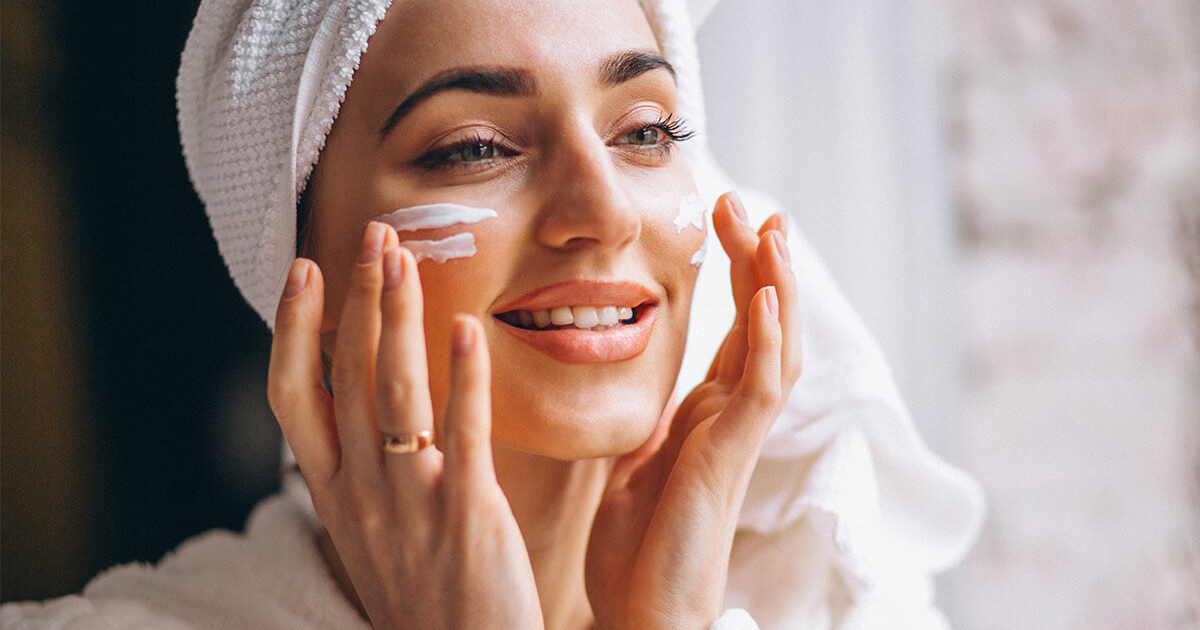Healthy, hydrated skin is often the goal of many skincare routines, and it’s not surprising why. Hydrated skin is more resilient, looks glowing, and feels soft and smooth. However, maintaining healthy skin requires a combination of proper skincare habits, nutrition, and lifestyle choices. If you’re looking to achieve radiant, hydrated skin, following a few essential skincare tips can make a significant difference. This guide will walk you through these tips step by step.
1. Drink Plenty of Water
One of the most important and simple ways to maintain hydrated skin is by staying hydrated from the inside out. Drinking plenty of water throughout the day helps keep your skin moist and nourished, which in turn can reduce the appearance of dryness, flakiness, and dullness.
Why Water Matters for Your Skin
- Water helps maintain the skin’s elasticity and prevents sagging.
- It supports the skin’s natural barrier function, which keeps moisture in and irritants out.
- Proper hydration can help flush toxins from the body, improving overall skin health.
2. Use a Gentle Cleanser
Cleansing your skin is essential for removing dirt, oil, and impurities. However, using a harsh or drying cleanser can strip your skin of its natural oils, leading to dehydration. Opt for a gentle, hydrating cleanser that works with your skin type to cleanse without causing dryness.
Tips for Choosing a Cleanser
- Look for a hydrating cleanser that contains ingredients like glycerin or hyaluronic acid, which help attract moisture to the skin.
- Avoid cleansers with strong fragrances, sulfates, or alcohol, as these ingredients can irritate and dry out the skin.
- If you have dry skin, consider using cream-based cleansers. For oily or acne-prone skin, gel cleansers can be effective while still being gentle.
3. Moisturize Regularly

Moisturizing is key to keeping your skin hydrated and smooth. A good moisturizer creates a protective barrier on the skin that locks in moisture and prevents water loss. Make sure to apply moisturizer right after cleansing when your skin is still damp to lock in hydration.
How to Choose the Right Moisturizer
- For dry skin, choose a rich, emollient cream that contains ingredients like ceramides, shea butter, or oils (like jojoba or argan oil).
- For oily or acne-prone skin, opt for a lightweight, non-comedogenic (won’t clog pores) moisturizer.
- If you have sensitive skin, look for fragrance-free and hypoallergenic options to avoid irritation.
4. Apply Sunscreen Daily
Protecting your skin from the harmful effects of UV rays is one of the most important skincare tips for overall skin health. Sun exposure can cause dehydration, premature aging, and increase the risk of skin cancer. Make sunscreen a daily part of your routine, even on cloudy days.
Sunscreen Tips for Hydrated Skin
- Look for a sunscreen with broad-spectrum protection (against both UVA and UVB rays) and a SPF of at least 30.
- Choose a sunscreen with added moisturizing ingredients like glycerin or hyaluronic acid for additional hydration.
- Apply sunscreen generously and reapply every two hours when outdoors.
5. Use Hydrating Serums
Incorporating a hydrating serum into your routine can give your skin an extra boost of moisture. Serums are lightweight, fast-absorbing formulas that are packed with active ingredients, often targeting specific skin concerns like hydration, fine lines, and pigmentation.
Popular Hydrating Ingredients to Look For
- Hyaluronic Acid: Known for its ability to hold 1,000 times its weight in water, this ingredient draws moisture into the skin, leaving it plump and hydrated.
- Vitamin C: Besides its brightening benefits, vitamin C helps lock in moisture and supports the skin’s collagen production, improving skin texture.
- Niacinamide: This anti-inflammatory ingredient helps the skin retain moisture, while also improving the skin’s overall appearance by reducing redness and blotchiness.
6. Exfoliate Regularly, But Gently
Exfoliating your skin helps remove dead skin cells, revealing fresh, healthy skin underneath. When done in moderation, exfoliating can also improve the absorption of moisturizers and serums. However, over-exfoliating or using harsh exfoliants can strip the skin of its natural oils, leading to dryness and irritation.
Tips for Gentle Exfoliation
- Exfoliate no more than 1-3 times per week, depending on your skin type and the exfoliant you’re using.
- Opt for gentle exfoliants like chemical exfoliators (AHAs, BHAs) rather than abrasive physical scrubs that can cause microtears in the skin.
- If you have sensitive skin, start with a mild exfoliant and patch test new products to ensure they don’t irritate your skin.
7. Incorporate Face Masks for Extra Hydration
Hydrating face masks are an excellent way to give your skin an intensive moisture boost. These masks are often formulated with rich ingredients that deeply nourish and hydrate the skin, making them a perfect addition to your skincare routine, especially during colder months or when your skin feels particularly dry.
Types of Hydrating Face Masks
- Sheet Masks: These are soaked in hydrating serums and are an easy and quick way to hydrate the skin.
- Clay Masks: While clay masks are known for their oil-absorbing properties, many formulations now contain hydrating ingredients like aloe vera and glycerin to balance hydration.
- Overnight Masks: These masks are designed to be worn while you sleep and are packed with nourishing ingredients that hydrate and replenish the skin overnight.
8. Use a Humidifier
Dry air, especially during the colder months or in air-conditioned environments, can contribute to skin dehydration. A humidifier adds moisture back into the air, helping to prevent your skin from drying out.
Why a Humidifier Can Help Your Skin
- It helps maintain optimal skin hydration levels, especially if you live in a dry climate.
- Using a humidifier while you sleep can help restore moisture to your skin overnight.
- It prevents the skin from becoming tight, flaky, or irritated, especially during winter months.
9. Eat a Hydrating Diet

What you eat plays a crucial role in the health of your skin. Eating a balanced diet rich in water-containing fruits and vegetables can help hydrate your skin from the inside out. Nutrient-dense foods also provide the vitamins and minerals necessary for healthy skin.
Foods to Include in Your Diet for Hydrated Skin
- Watermelon: Contains a high amount of water to hydrate your skin while also providing antioxidants.
- Cucumber: Packed with water, cucumbers help maintain skin hydration and calm inflammation.
- Avocados: Full of healthy fats and vitamins E and C, avocados help keep your skin nourished and moisturized.
- Berries: High in vitamin C, berries help stimulate collagen production and keep skin looking youthful and hydrated.
10. Get Enough Sleep
Adequate sleep is vital for maintaining healthy skin. During sleep, your skin repairs and regenerates itself, and hydration levels are restored. Poor sleep can lead to dehydration, dullness, and the appearance of fine lines.
Tips for Restorative Sleep
- Aim for 7-9 hours of quality sleep each night.
- Sleep on your back to avoid pressure on your face, which can contribute to wrinkles.
- Keep your bedroom cool and dark to promote deeper, more restful sleep.
Also Read: Embrace Your Glow: The Power Of Natural Beauty
Conclusion
Achieving healthy, hydrated skin is a combination of the right skincare practices and healthy lifestyle choices. By following these essential skincare tips—drinking plenty of water, using gentle cleansers, moisturizing regularly, and protecting your skin from the sun—you can maintain smooth, glowing, and hydrated skin year-round. Don’t forget the importance of eating a balanced diet, getting enough rest, and incorporating treatments like serums and face masks for added hydration. With patience and consistency, you can enjoy radiant, well-hydrated skin that looks and feels its best.
FAQs
Q. How Can I Tell if My Skin Is Dehydrated?
Dehydrated skin often feels tight, dry, or rough. It may also appear dull and flaky. If your skin lacks moisture, it can lead to premature aging signs like fine lines and wrinkles. You might also experience increased oil production if your skin tries to compensate for the lack of moisture.
Q. Is There a Difference Between Hydration and Moisturization?
Yes. Hydration refers to increasing the water content in the skin, while moisturization refers to locking in that hydration and preventing water loss. Hydrating products often contain ingredients like glycerin or hyaluronic acid, while moisturizers typically include oils, butters, or emollients.
Q. Can I Hydrate Oily Skin?
Yes, oily skin still needs hydration. Opt for lightweight, non-comedogenic hydrating products, such as gel-based moisturizers or serums with hyaluronic acid, to hydrate without clogging pores.
Q. How Often Should I Exfoliate for Hydrated Skin?
Exfoliate once or twice a week, depending on your skin type. Over-exfoliating can lead to dryness, irritation, or increased sensitivity, so it’s important to use exfoliating products in moderation.
Q. Are There Any Foods to Avoid for Better Skin Hydration?
While no food will directly cause dehydration, foods that are high in refined sugars, alcohol, and caffeine can contribute to skin dryness. It’s best to limit these foods and focus on water-rich, nutrient-dense options to keep your skin hydrated.

